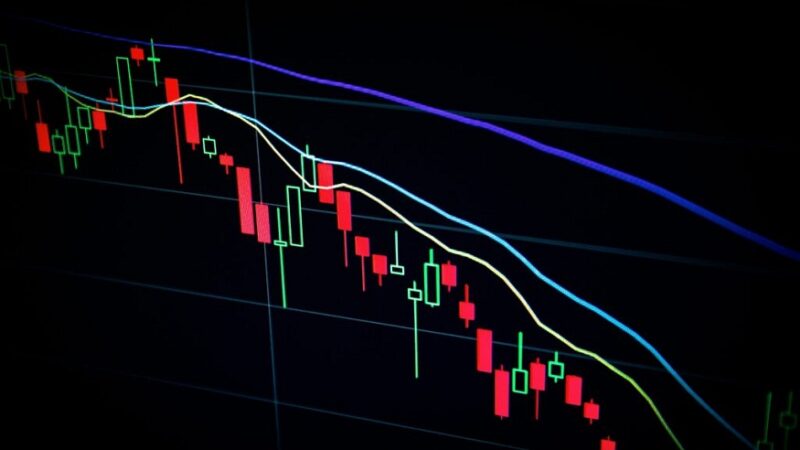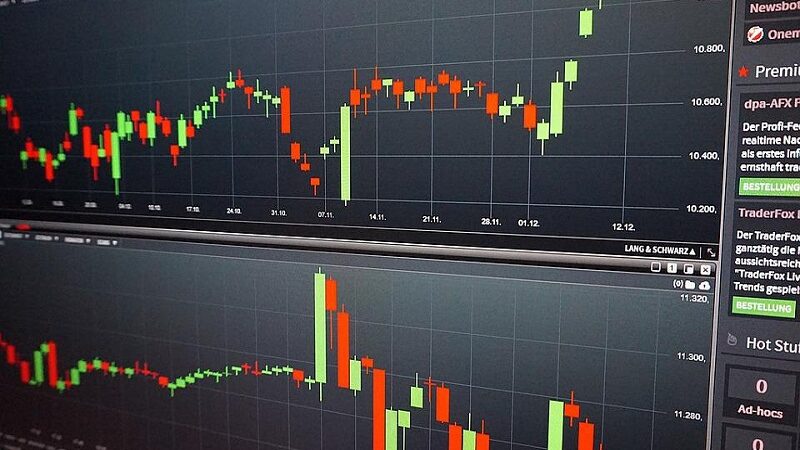Trends & Events in Stock market 2023

A combination of positive and negative tendencies defines the multifaceted picture of the Indian stock market. There have been swings in the market, which is a sign of the continuous interaction between international and economic variables. Let’s look at some of the key events of this year.
1. Mid-Year Bullish Momentum and Potential Future Concerns
Throughout 2023, the Indian stock market has captured the attention of international institutional investors, pushing the BSE Sensex and the NIFTY 50 to record highs. This has encouraged new investors to enter the share market. Due to substantial corporate profits, a rebound in industries like finance, autos, fast-moving consumer goods, and domestic growth, the Indian stock market’s incredible run persisted in July. However, if inflation keeps lowering the market mood, things may change in August.
2. RBI’s Monetary Policy and Inflation Challenges
In the August Monetary Policy Committee announcement, the Reserve Bank of India (RBI) kept its position of pausing repo rates for the third time in a row, hoping that inflation would decline and being ready to take action if the circumstances called for it. On the other hand, the July Consumer Price Index (CPI) inflation number was extremely high, rising to a 15-month high of 7.44%, over the RBI’s 4% tolerance level of +/- 2%.
3. Mixed Fortunes in the Fourth Quarter
Additionally, positive Q4 earnings show that demand is still gaining traction. This quarter’s performance of the small- and mid-cap indexes over the more prominent benchmarks has strengthened the trend of the valuation disparity decreasing.
There were significant highs and lows in October 2023. On October 19, the Nifty dropped to 19,624.70, down 46.40 points (0.24%), and the BSE Sensex plummeted to 65,629.24, down 247.78 points (0.38%). These swings demonstrated how susceptible the market is to general economic conditions.
4. Spotlight on Small- and Mid-cap Winners
Since India’s small- and mid-sized companies have performed so well this year, experts on this segment of the $3.7 trillion country’s market identify possible winners for this Sunday’s Diwali celebration. India’s stock markets have a special one-hour session on this day to commemorate the beginning of the Hindu New Year, during which dealers and investors make ceremonial purchases. Among them, the top ones are real estate developers and top manufacturers of chemicals, wires, and cement.
5. The Bull Run in Festive Season
There has been a rise in online stock trading. The bulls have taken over the stock market, pushing benchmark equity indexes to new all-time highs in July and heralding a prosperous start to Q1FY24’s earnings season. Due to consistent inflows from FIIs, the benchmark BSE Sensex reached the 67,000 peak intra-day for the first time on July 18. At 19,819, the Nifty 50 also reached its peak. Only a few days earlier, on July 13, the Sensex broke beyond the 66,000 barrier intraday as investors praised the financial performance of IT giants TCS and
6. Performance of Market Indices
The Sensex and the Nifty have increased by 13% and 14% since the beginning of FY24, while the BSE MidCap and the BSE SmallCap have increased by 22% and 25%, respectively, until July 18. Furthermore, it seems that the present stock market value is somewhat acceptable. The Nifty’s price-to-earnings ratio (P/E) was 24.14 on July 17, compared to its 10- and five-year averages of 24.34 and 26.43, respectively. The markets are at record highs. However, the Nifty’s future P/E is trading close to its long-term average for the upcoming year, indicating that the market is in a fair zone.
As November got underway, the pattern held true. On November 9, the Nifty fell 48.20 points (0.25%) to 19,395.30, while the BSE Sensex fell 143.41 points (0.22%) to 64,832.20. On November 10, however, there was a change in trend; the NSE Nifty 50 index closed 30 points higher at 19,425, and the S&P BSE Sensex gained 72 points to 64,904.
Notably, on November 10, 2023, BSE share prices increased by 3.12%, indicating confidence in the market. The market was in contrast to itself on November 9, when 239 equities reached a 52-week high, and 27 stocks reached a 52-week low. This contrast illustrated the highs and lows in stock performance.
Conclusion
Strong domestic growth, significant foreign portfolio investments, and favourable macroeconomic conditions contributed to the Indian stock market’s recent upward trends. The success of several sectors and components and the rise in the mid-cap and small-cap indexes point to attractive investment prospects in the Indian market. It’s necessary to consider some difficulties, such as the influence of the Indian monsoon. Making well-informed financial selections requires constant observation of global trends and market dynamics. The best mobile trading app in India offers real-time market news and analysis. Kotak Securities is one such renowned platform. You can find all the market data to help you make the right investment choices.






